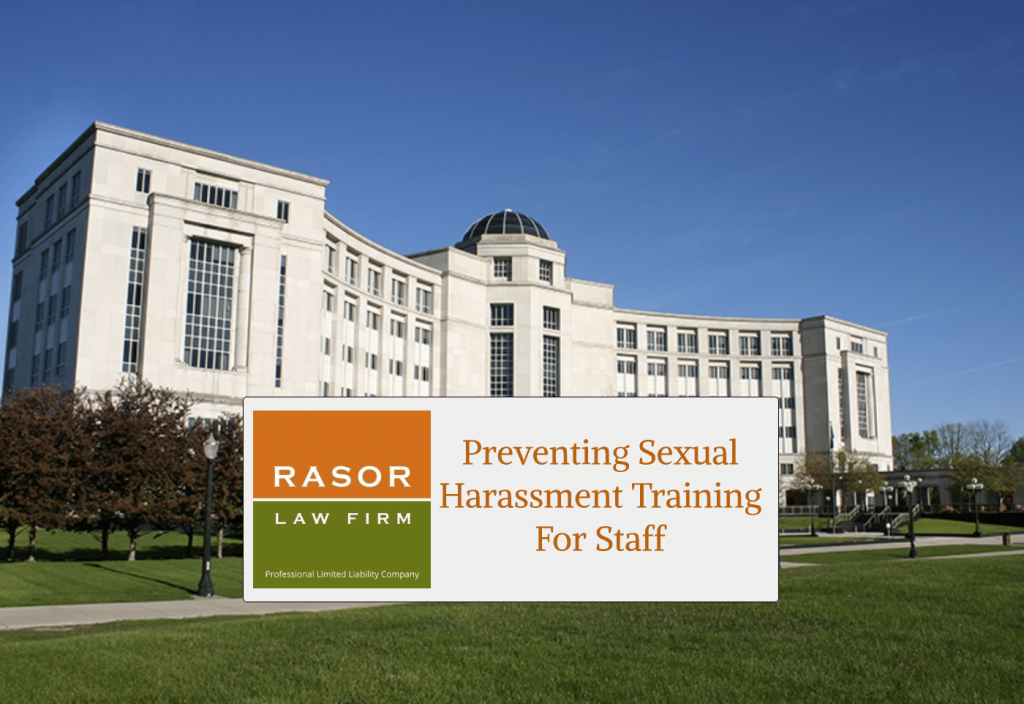Creating a safe and respectful work environment starts with knowledge, empathy, and accountability. That’s why Training Against Harassment is more important now than ever. Every employee, from entry-level to executive, deserves to work in a space where they feel valued and protected. Unfortunately, sexual harassment still occurs far too often, leading to emotional distress, damaged reputations, and serious legal consequences. By proactively implementing workplace training programs, Michigan employers can help ensure that all team members recognize inappropriate behaviors, understand their rights, and know how to respond if an issue arises. Training Against Harassment isn’t only about legal compliance—it’s a proactive commitment to foster dignity and respect within the workplace.
What to Know About Training Against Harassment
Training Against Harassment refers to structured educational programs designed to prevent sexual harassment in the workplace by informing staff of what constitutes inappropriate behavior. These training sessions vary in format but often include real-life scenarios, legal definitions, and guidance on reporting procedures.
For example, one module may present a situation where a supervisor repeatedly makes comments about a coworker’s appearance. While they may frame it as a compliment, such remarks can create an uncomfortable work environment. Another situation could involve an employee being excluded from team lunches after rejecting a colleague’s romantic advances. These examples illustrate the subtle and overt ways harassment can surface.
Michigan employers, particularly those with diverse teams and public-facing roles, are increasingly turning to mandated or voluntary training programs to ensure staff awareness and to stay ahead of liability risks. Most importantly, these programs educate participants on their roles in preventing violations of workplace dignity and equality.
Why Preventing Harassment Through Training Is So Important
Beyond legal compliance, training against workplace harassment is vital because it protects people. It establishes clear expectations for behavior and empowers employees to speak up without fear. When workers understand their rights and employers create channels for open dialogue, everyone benefits from a culture of respect. Training programs aren’t just checkboxes—done well, they become the backbone of an organization’s commitment to safety and well-being.
Failing to provide adequate Training Against Harassment can have costly implications. Consider the reputational harm a business could suffer if employees make public claims of misconduct. Worse, mishandling a harassment complaint can lead to litigation, settlements, and irreparable trust issues internally.
- A new hire is not trained on harassment policies and makes inappropriate jokes. The company faces a lawsuit and public backlash.
- An employee reports harassment, but their manager was never trained on how to handle complaints. The issue is ignored, causing emotional harm to the employee and increasing liability for the company.
- Two team members date, and after a breakup one receives unwanted messages at work. Without proper training on respectful workplace interactions, HR mishandles the situation and escalates conflict.
How Michigan’s Anti-Harassment Training Typically Works
- Step 1: Employers identify legal requirements or industry guidelines for harassment prevention training—this may depend on the number of employees or contract types.
- Step 2: A reputable training program is selected and customized. Employers can choose live instruction, web-based courses, or a hybrid of the two to meet their needs.
- Step 3: Upon completion of training, the program documents employee participation and stores records as proof of compliance, often reviewed during performance audits or investigations.
Effective Ways to Manage Harassment Training at Work
Common Questions About Harassment Training in Michigan
How Rasor Law Firm Helps Clients Navigate Harassment Laws
Rasor Law Firm supports Michigan businesses and individuals in understanding and applying laws related to workplace harassment. With years of experience in employment law, their attorneys offer tailored advice and representation for companies looking to reduce liability or resolve complaints. Their team helps organizations implement effective Training Against Harassment programs while providing strategic counsel when legal issues arise. They also advocate for employees who have experienced harassment, guiding them through filing complaints, documenting evidence, and pursuing justice if necessary. By choosing Rasor Law Firm, clients gain a partner dedicated to protecting reputations, restoring peace of mind, and ensuring all workplaces are safe and civil.


